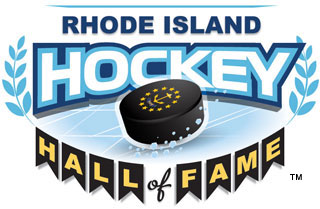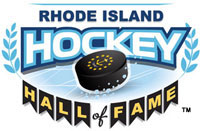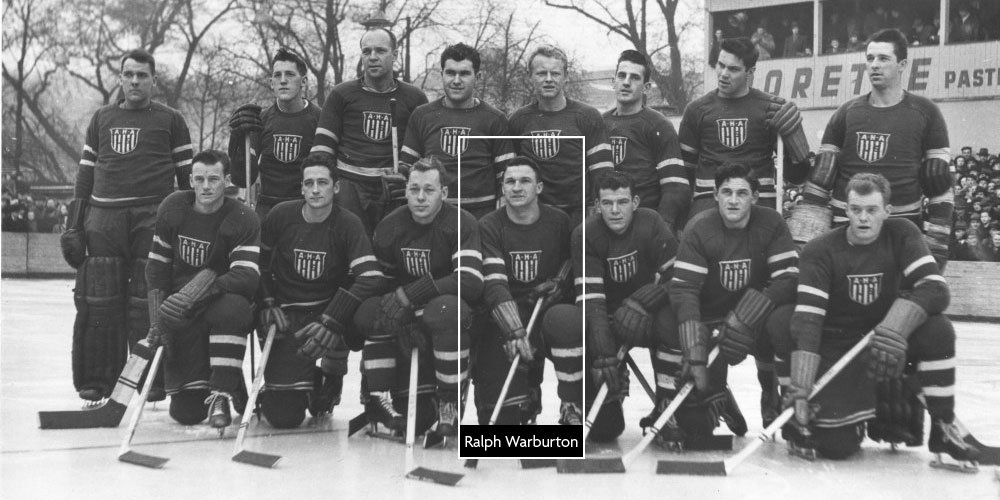The Olympics of 1940 and 1944 were both cancelled because of WWII, but even before the ’48 Games at St. Moritz got underway there was another war erupting – a hockey war – that threatened the inclusion of hockey and the appearance of RI’s first Olympic hockey players.
The conflict involved two American hockey bodies, the American Hockey Association (AHA) and the Amateur Athletic Union (AAU), predecessor to USA Hockey.
The IIHF had always maintained that athletes could not participate in the Olympics unless they were endorsed by their own country’s governing body. In this case, the AAU had run amateur hockey in the U.S. since 1930, but that organization had been expelled by the IIHF the previous year because it had refused to support those players who made up the Americans’ national team, all of whom played under the auspices of the “professional” AHA.
So the IIHF recognized and thus welcomed the AHA, not the AAU, to the 1948 Olympics even though it was a league that paid some of its players. In an era of strictly amateur competition, athletes who were paid to play their sport were forbidden to participate in the Games. As a result, the AAU refused to acknowledge these players, even though not all were actually paid.
Ralph Warburton, a Cranston native out of LaSalle Academy, was the star captain on Dartmouth’s NCAA championship team. He played for the AHA team. His Dartmouth teammate, the multi-talented George Pulliam, another Cranston native, and Woonsocket’s Gus Galipeau out of Mount St Charles were vying for roster spots on the AAU squad.
Avery Brundage, chairman of the U.S. Olympic Committee, sided with the AAU. He threatened to withdraw the entire U.S. Olympic team if the AHA attended the Olympics in St. Moritz. The IIHF countered by threatening to withdraw hockey from the Games if the AHA were banned. “It isn’t a question of which hockey team should play,” Brundage said. “It is whether the Olympic Games are for amateurs or for business institutions like the AHA.” At the very moment Brundage spoke, the AHA team had already arrived in St. Moritz and the AAU team was on its way – two teams hoping to represent the same country!
Meanwhile, the Swiss Olympic Organizing Committee had already formally accepted the AHA application when the executive committee of the International Olympic Committee offered its opinion that both U.S. entries be denied. On January 20, the U.S. Olympic Committee upped the ante by voting 68-6 in favor of withdrawing all American athletes from the Games if the AHA were allowed to participate.
Just before the Americans were to play their first game of the tournament, the IOC relegated hockey to an “unofficial” event. Then, on February 7th, a compromise was reached whereby the USA’s AHA entry could play but not medal. They would play all opponents and be placed in the standings, but it could not qualify for a medal and all statistics from games against the Americans would not count. In the end, the AHA team played, but was disqualified from the competition.
Through it all, Ralph Warburton set the ice on fire, scoring an amazing 16 goals and 5 assists in just 8 games. All the while, George Pulliam, who had made the final AAU roster could only look on from the stands.
Posted by RIHHOF


